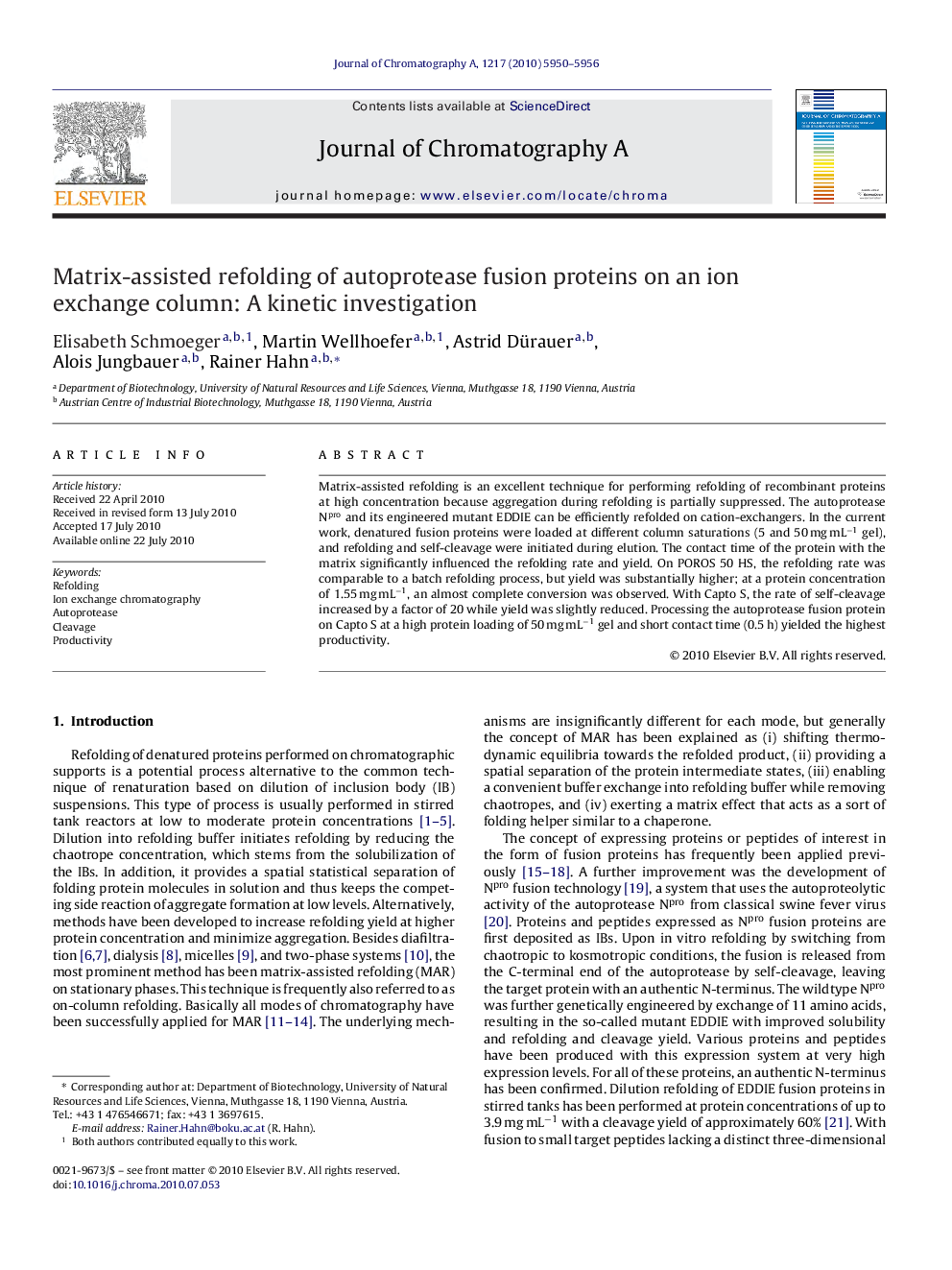| Article ID | Journal | Published Year | Pages | File Type |
|---|---|---|---|---|
| 1204788 | Journal of Chromatography A | 2010 | 7 Pages |
Matrix-assisted refolding is an excellent technique for performing refolding of recombinant proteins at high concentration because aggregation during refolding is partially suppressed. The autoprotease Npro and its engineered mutant EDDIE can be efficiently refolded on cation-exchangers. In the current work, denatured fusion proteins were loaded at different column saturations (5 and 50 mg mL−1 gel), and refolding and self-cleavage were initiated during elution. The contact time of the protein with the matrix significantly influenced the refolding rate and yield. On POROS 50 HS, the refolding rate was comparable to a batch refolding process, but yield was substantially higher; at a protein concentration of 1.55 mg mL−1, an almost complete conversion was observed. With Capto S, the rate of self-cleavage increased by a factor of 20 while yield was slightly reduced. Processing the autoprotease fusion protein on Capto S at a high protein loading of 50 mg mL−1 gel and short contact time (0.5 h) yielded the highest productivity.
